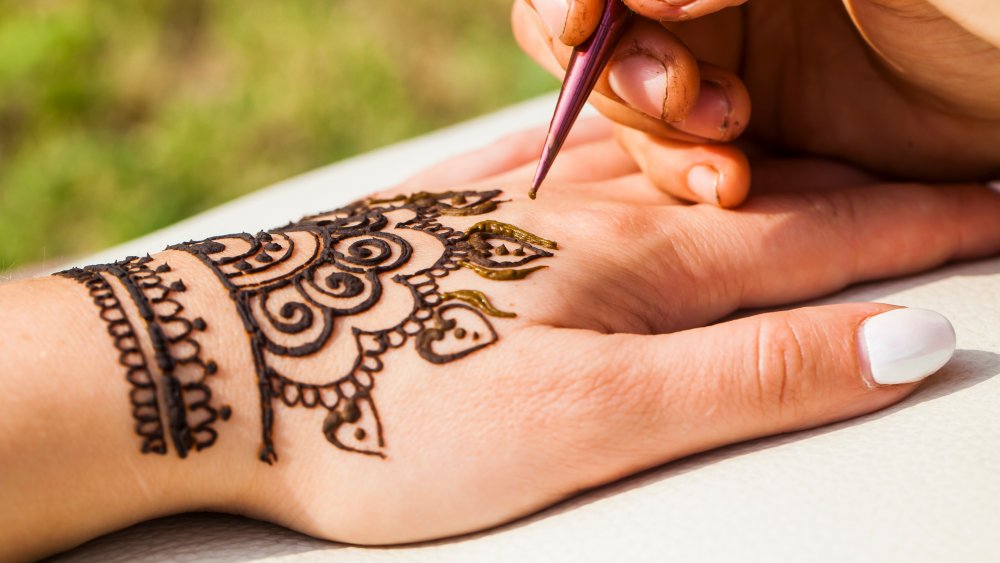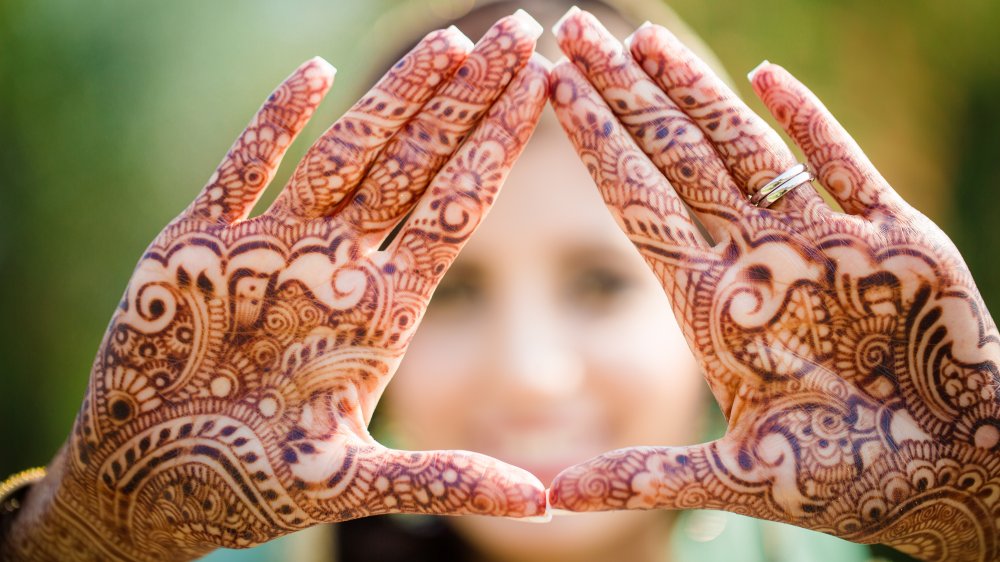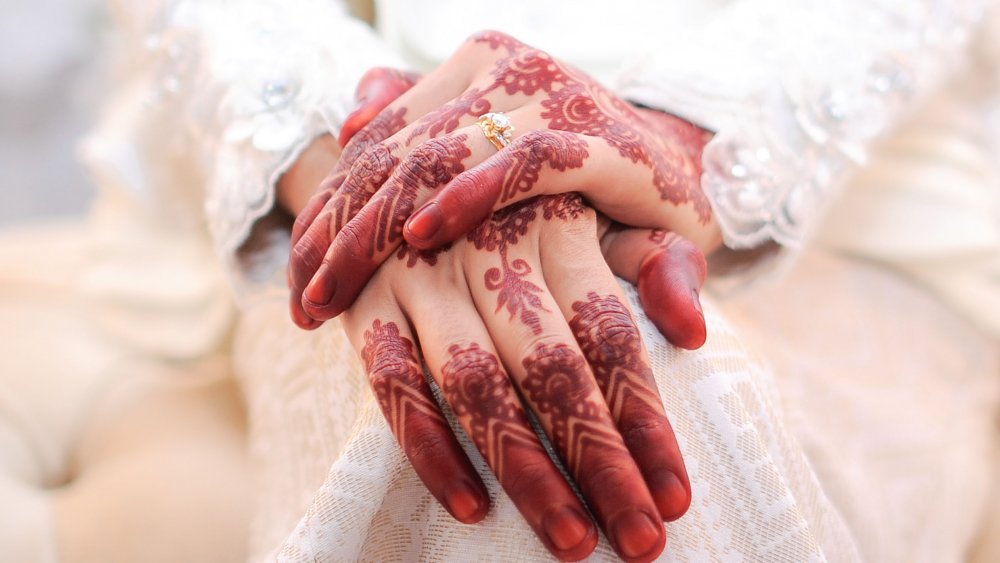How Long Do Henna Tattoos Really Last?
Henna tattoos are the easiest (and least painful) way to road-test your ink before getting it done for real, and celebrities like Beyonce have made them more popular than ever before. As a post by Authority Tattoo notes, the practice is actually very old, and in certain cultures, is even used to mark special occasions such as weddings.
Henna generally lasts longer than other temporary tattoos. It's a colorant, rather than ink that is inserted into your skin, but just like any other kind of dye, it will fade over time. Whether you're looking for a summer-long temporary inking or one that fades sooner rather than later, henna may be just right for you.
How does henna work?
Henna designer Grainne Jones told The Sun, "Henna is a plant that grows in arid climates, think India, Pakistan, Egypt, Morocco. Henna paste — what is put onto the skin — is made using the ground-up leaves of the henna plant mixed with sugar, water and essential oils." Jones advises henna should always be handmade for best results.
Authority Tattoo notes henna contains the molecule lawsone, which binds to your skin's keratin proteins. This makes the dye darker while also stopping it from washing off until the layer of skin is shed. Much like an apple, which goes brown through oxidation, henna darkens over the first 48 hours after application. It actually increases in darkness over time, making it a longer-lasting dye overall.
How long does henna last?
As Authority Tattoo notes, henna can last anywhere from a week to a few months, depending on its location, which assists with longevity provided the area boasts thicker skin (such as the soles of your feet, palms of your hands, or your stomach). The longer you leave the paste on, the longer it will last. Ideally, you should leave it on overnight for best results. Likewise, keep it moist using the Indian method of lemon juice and sugar; the lemon increases molecular binding and the sugar intensifies color (alternatively, keep it dry if you want the henna gone ASAP).
Keeping the design warm for the first 48 hours after application will also help, though too much heat could lead to you sweating it off. Don't wash the area often or scrub it using exfoliators, as it will affect the dye's ability to stick to the skin. Jones advises keeping skin clean and clear prior to getting the henna applied, however, suggesting, "Don't have any moisturizers/oils/fake tan on before your appointment."


